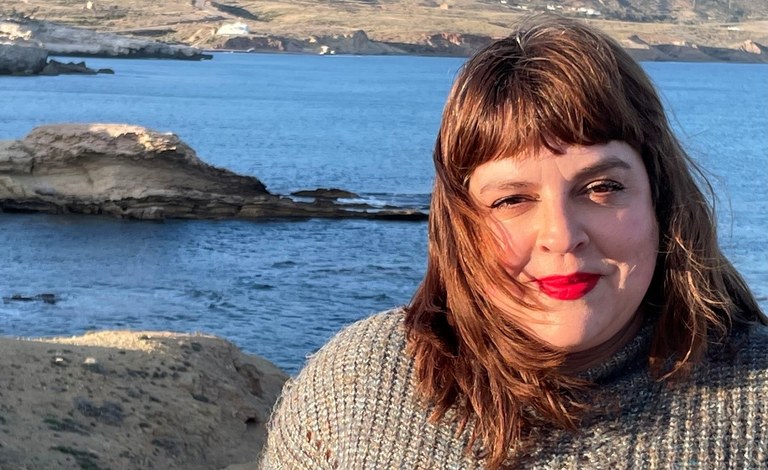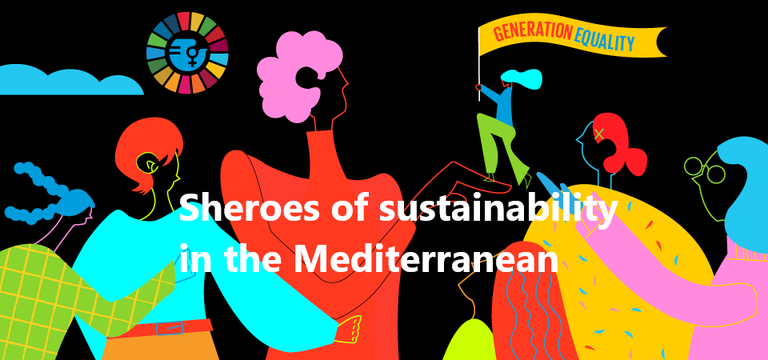Gloria García Hoyo: on the frontline fighting plastic pollution in Specially Protected Areas of Mediterranean Importance (SPAMI) of Spain
The role of women in coastal management is often underestimated, although men and women inevitably have an impact on the implementation and management of Marine Protected Areas (MPAs) and play different but equally important key roles. as Stakeholders.
In southern Spain, two women take measures to protect the Specially Protected Areas of Mediterranean Importance (SPAMI) of the Cabo de Gata-Níjar Natural Park: Lucía Tejero Trujeque, Director of Conservation of the Natural Park, and Gloria García Hoyo, Technical Assistant and Geologist. Their preferred place of work, Cabo de Gata-Níjar Natural Park, has been integrated into the Global Geoparks Network, an association placed under the auspices of UNESCO. The accreditation of the Global Geoparks recognized the geological values of Cabo de Gata-Níjar, its volcanic origin, the conservation of its 63 kilometers of steep coasts and its seabed, its sub-desert and steppe ecosystems, its unique character as natural maritime and terrestrial space and its potential for promoting geological tourism. This tourism has many aspects and the Park is also a victim of its own success. A flagship tourism destination, it also suffers.
 “More than ever, we realize that we need to act, and quickly. This year we have seen a large quantity of disposable masks pouring into the sea. These masks represent an additional problem to the one we were already facing with plastics and other types of waste, ”says Gloria García. She adds: "We have jumped at the opportunity to participate in projects in the Mediterranean which aimed to share knowledge and methodologies to analyze the plastic problem and eliminate it sustainably with targeted measures".
“More than ever, we realize that we need to act, and quickly. This year we have seen a large quantity of disposable masks pouring into the sea. These masks represent an additional problem to the one we were already facing with plastics and other types of waste, ”says Gloria García. She adds: "We have jumped at the opportunity to participate in projects in the Mediterranean which aimed to share knowledge and methodologies to analyze the plastic problem and eliminate it sustainably with targeted measures".
On this road to the Cabo de Gata-Níjar Natural Park without plastic, Lucía Trujeque and Gloria García are directly supported by the SCP / RAC through two projects funded by the EU (AMP ACT4LITTER and PLASTIC BUSTERS). Under the first project, the SCP / RAC helped MPA managers identify the most effective and feasible measures to tackle marine litter in their specific MPA context, while the second project enabled them go further by implementing the measure on site.
“We have been fortunate to be able to count on the SCP / RAC team. Here at Cabo de Gata, we didn't know where to start or how. To eradicate the plastic problem, it is necessary to identify the main source of waste, to mobilize all regional actors, to establish an effective action plan and to implement it. Through these projects, we not only received the support of SCP / RAC and other project partners to implement concrete measures, but we also had the chance to participate in many events at Mediterranean level to echo to our work. She also adds: “Being listened to, having the opportunity to meet MPA managers with profiles and actions similar to ours, but in different regions and contexts, has enabled us to better understand and address the scale of the problem. problem. It was also an opportunity to realize that many women also work in MPAs, as in other Institutions, Universities, Governments, NGOs, which have supported us during all this time.
The implementation, transfer and capitalization of existing solutions with the active participation of MPA managers is crucial to effectively prevent waste from ending up at sea. However, it is not the only solution. The strategy must encompass different types of actors, the approach must be multisectoral and responses must be developed at different scales (local, national, regional and global). The SCP / RAC actively supports the implementation of the regional plan of the Barcelona Convention on Marine Litter Management with a strong emphasis on the prevention of marine litter from land-based sources.
The SCP / RAC supports the development of a strong policy framework to prevent plastic pollution, including the provision of tools and capacities; stimulates the development of innovative solutions by green entrepreneurs, educates citizens to allow informed consumer choice and encourages dialogue and collaboration between stakeholders. This vision also aims to break down silos between gender actors and to pay particular attention to creating a more gender inclusive environment.
The views expressed do not necessarily represent the decision or the stated policy of the United Nations Environment Programme.

